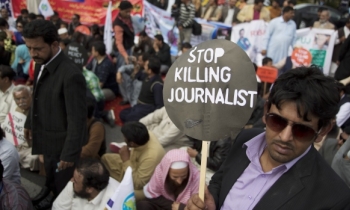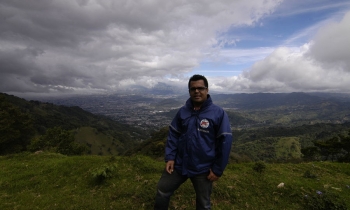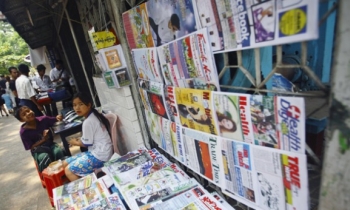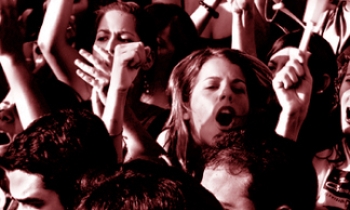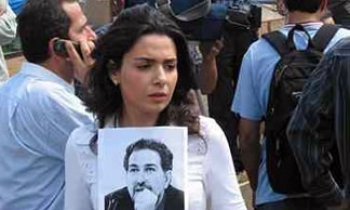Pham Xuan An, 79, the Viet Cong colonel who worked as a reporter for U.S. news organizations during the Vietnam War while also spying for the communists, died of emphysema Sept. 20 in a military hospital in the former Saigon, now known as Ho Chi Minh City.
The secret of Mr. Pham's double life was kept for almost 30 years, from 1959 until the 1980s. He was the first Vietnamese to be a full-time staff correspondent for a major U.S. publication, working primarily for Time magazine.
Although his job as a spy was to uncover and report the plans of the South Vietnamese and U.S. military, he was so good at collecting and analyzing information that he was considered the best Vietnamese reporter in the press corps. He said he did not lie, tilt the news or spread disinformation in the stories he filed.
"It would have been stupid to do that. He would have been found out in an instant," said Frank McCullough, a retired newspaperman who was Time's bureau chief in Saigon and who hired Mr. Pham. "He used the bureau as a listening post. He was an extremely sophisticated understander of not only Vietnamese culture but its politics."
By night, he photographed intelligence reports that then were smuggled out of Saigon through the Cu Chi tunnel network. He disguised the film canisters as grilled pork wrapped in rice paper, according to one account, or hid them in the bellies of rotting fish. Other times, he wrote his reports in primitive invisible ink made of starch, author Stanley Karnow wrote.
"The most remarkable thing was how he was able to pull it off for such a long time, to be such a successful spy and a good journalist," said Larry Berman, whose biography "Perfect Spy: The Incredible Double Life of Pham Xuan An, Time Reporter and Vietnamese Communist Agent" will be published in the spring.
"He never had to steal a document because he was such a professional journalist and professional spy. His closest mentors were [Col. Edward] Lansdale and [later CIA chief] William Colby. People were always showing him things to get his opinion and analysis because he was so smart."
Mr. Pham was able to alert the communist troops to the impending buildup of U.S. troop strength in the mid-1960s, which the Pentagon denied when McCullough tried to report it in Time. Much of what the Viet Cong wanted was what the news media wanted, just in greater detail.
"It was not especially confidential stuff -- the government army's deployments and strength, which commanders were capable or incompetent or corrupt. And there was gossip -- who's sleeping with whose wife or girlfriend," Mr. Pham told Karnow in 1990.
His intelligence was good enough that he was promoted to colonel while working as a reporter. He secretly arranged for the release of reporter Robert Sam Anson, who had been captured by the Khmer Rouge in Cambodia, and he was responsible for getting South Vietnam's former security chief Tram Kim Tuyn on the last U.S. helicopter that left Saigon. His own wife and four children left Vietnam aboard a plane provided by Time. He stayed. "It was the stupidest thing I ever did," he said later.
After the Americans left, Mr. Pham cabled Time's headquarters as its last staffer in Saigon and filed three more stories as the North Vietnamese took over the city. In 1976, the bureau closed and Mr. Pham endured a year of "reeducation" in Hanoi. He was suspected of becoming too close to Americans and was kept under house arrest, barred from seeing returning veterans or reporters. He was still nominally a military intelligence officer.
By 1990, as Vietnam was reopening to Western visitors, Mr. Pham was promoted to major general and was named a Hero of the People's Armed Forces, with four military-exploit medals. Karnow, CBS reporter Morley Safer and others began to report on Mr. Pham's life as an undercover agent, and the New Yorker published a profile of him in 2005.
Born in Hai Duong, Mr. Pham dropped out of high school in 1945 to enlist in the Viet Minh, which fought for Vietnam's independence from France. After a short time, he left for Saigon, where he organized student demonstrations against the French. The Viet Minh anticipated that the American presence would grow after the French left and decided to train Mr. Pham as a spy. Inducted into the Communist Party in 1953, he volunteered as a press censor at the Saigon post office.
He could not avoid being drafted into the South Vietnamese Army, but using family connections, he got himself assigned to Lansdale, the U.S. colonel who ran the CIA's covert operations in Vietnam, and began to learn spycraft. The Viet Minh raised money to send Mr. Pham to college in the United States, and with the help of a State Department scholarship, he enrolled at Orange Coast College in Costa Mesta, Calif., and studied journalism for two years.
Mr. Pham worked as an intern at the Sacramento Bee newspaper and then drove cross-country and interned at the United Nations.
Summoned back to Vietnam in 1959, he began working for VTX, the Viet News Agency, and then for Reuters. He became immensely popular with newsmen, often sharing tidbits and explaining relationships while smoking cigarettes at Saigon's street cafes, accompanied by his two German shepherds.
Slender, engaging and at ease with nuances that escaped reporters who did not speak the language, Mr. Pham warned his superiors against launching the Tet Offensive, which they believed would spark a popular uprising, Karnow said. They disregarded his advice, and he helped scout targets for the attack in Saigon. He later counted the dead while driving around the city in his green Renault.
Survivors include his wife, Thu Nanh, and four children.
Mr. Pham never expressed regret about his role, biographer Berman said.
"He didn't believe we belonged in his country. He was a nationalist," Berman said. "He felt this is something the Vietnamese had to settle between themselves. To put it another way, he thought America got in the way of Vietnam's history."

